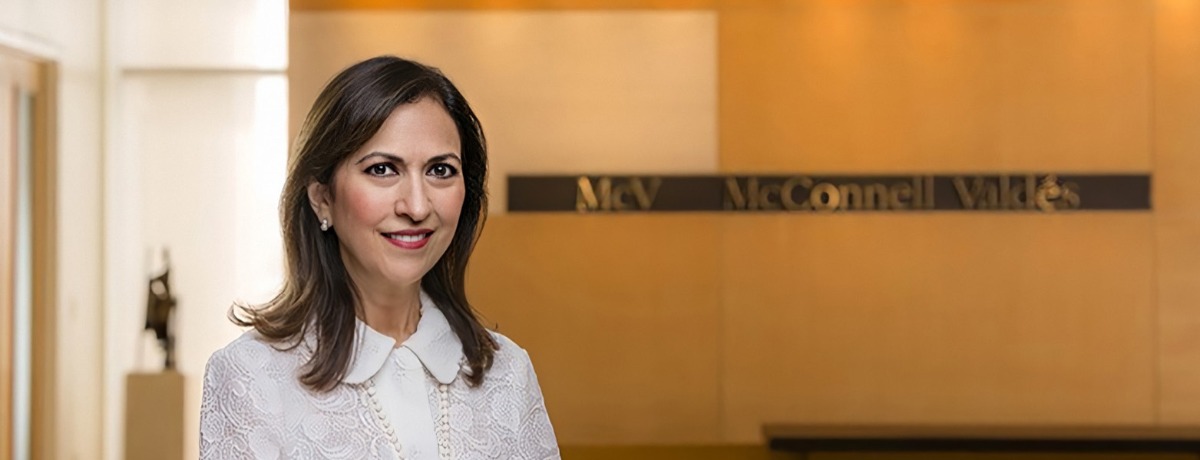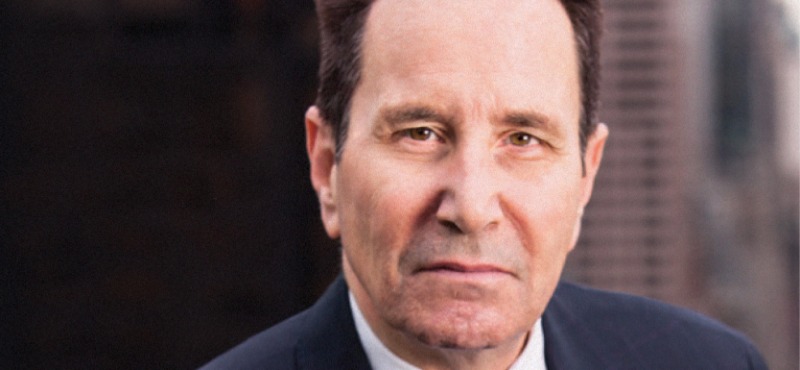Puerto Rico's status as a U.S. territory—not a state, not a foreign nation, but something in between—creates a host of complications regarding taxes. Helping businesses and individuals cut this financial Gordian Knot is Isis Carballo-Irigoyen, capital member and chair of the Tax Practice Group at McConnell Valdés. The firm, which has offices in San Juan, Miami, and Washington, D.C., was recently named "Law Firm of the Year" for Tax Law. Carballo-Irigoyen recently sat down with Best Lawyers CEO Phillip Greer to discuss intergovernmental relations, opportunity zones, and why a move to Puerto Rico to ease your tax burden likely won’t be as simple as you might think.
What does it mean to you and the team at McConnell Valdés to be named Puerto Rico’s Tax Law Firm of the Year?
Isis Carballo-Irigoyen: It is a great honor to have been chosen among other tax law firms in Puerto Rico, which we respect and hold in high esteem. But I must say that the recognition is well-deserved—an acknowledgment of the depth and breadth of our practice and the excellence of our team.
Were there any particular cases over the last year that you think contributed to this distinction?
I cannot say there was one specific case but rather a combination of work for many clients and major transactions over the year. For example, we represented Scotiabank in the acquisition of its Puerto Rico operations by Oriental Bank—a transaction that was highly publicized. We assisted several multinational companies to restructure their operations in Puerto Rico, including complex renegotiations of their tax incentives grants. We were in charge of obtaining tax concessions and generating tax credits for various major luxury hotel developments in the Island: the Dorado Beach Hotel, Coco Beach, and Hotel San Juan. We were very actively involved with the District—a new project in the Miramar Convention District with high expectations for the promotion of tourism in Puerto Rico.
We have been very active in obtaining tax incentives for manufacturing and energy projects and also attracting high-net-worth individual investors to Puerto Rico to invest and provide export services under special tax incentives laws. We continue to assist clients with tax issues related to reconstruction work after Hurricane Maria. And we also have assisted many not-for-profit entities, including through our firm’s pro bono program.
Have trade wars and protectionism affected your clients in terms of navigating taxes and tariffs?
Yes. For some of our manufacturing clients that import components from Asia to be used in their manufacturing operations in Puerto Rico, higher tariffs on these components have increased their production costs. But, as a consequence, some of these multinational companies have decided to shift some of their operations from Asia to Puerto Rico to avoid the tariffs by having the components manufactured here, which has been beneficial for the Puerto Rican economy.
Puerto Rico’s status as a U.S. territory means there are distinctions as to who pays federal taxes. Has this been problematic?
Many new clients don’t know that Puerto Rico is treated as a foreign country for federal income tax purposes, and they don’t really understand how Puerto Rico taxation works. But my main concern right now is that for many years the federal government has given Puerto Rico and other U.S. possessions preferential tax treatment vis-à-vis other foreign countries. This basically ended with the repeal of the IRC Section 936 manufacturing incentives, and the recent enactment of the GILTI rules of the Tax Cuts and Jobs Act of 2017 has further eroded Puerto Rico's attractiveness as a manufacturing site. In addition, the U.S. Treasury has allowed a foreign tax credit for certain excise taxes that U.S. companies pay in Puerto Rico—which account for 20 percent of the government’s revenues—but recently, it announced that it will end the credit prospectively. Puerto Rico is still dealing with its fiscal crisis, the ravages of Hurricanes Irma and Maria, and more recently the destruction caused by major earthquakes in the southern part of the Island. To come out of this crisis, Puerto Rico needs the support of the federal government with preferential tax treatment over other foreign jurisdictions.
In a similar vein, some regard Puerto Rico as a tax haven for mainland expats. What should people know about trying to relocate to Puerto Rico with respect to tax laws?
People think that simply by moving to Puerto Rico, their income, regardless of source, will be exempt from federal income taxation. We encounter this regularly with clients who would like to relocate to Puerto Rico under special tax incentives statutes. The first thing we tell them is that the federal Internal Revenue Code and regulations have very specific rules regarding taxation of bona fide residents of Puerto Rico and that the only type of income that is exempt from federal income taxation is Puerto Rico source income. These federal rules are complex. We advise potential clients that they have to comply with those federal rules because otherwise they may not be considered bona fide residents of Puerto Rico and their income, even if sourced in Puerto Rico, will be subject to federal income taxes.
Are there any upcoming projects or other work that you can talk about that particularly excites you?
I see a lot of interest from individuals who wish to relocate to Puerto Rico to take advantage of tax incentives for export services and individual investors. I think this area of practice will continue to grow. We are seeing much activity in the energy sector, with a push to renewable energy sources through local incentives, particularly in light of high energy costs in Puerto Rico. Another area of interest is the opportunity zones. Most of Puerto Rico was designated [by Congress] as an opportunity zone, so many U.S. companies and individuals that will generate capital gains have been contacting us looking for ways to make interesting investments here to reduce their capital gains rate and take advantage of the incentives in this law. We also expect to see activity in the CDBG-DR fund area—funds that the federal government will disburse to promote economic-development projects in Puerto Rico after Hurricane Maria. For various reasons, disbursement of these funds has been delayed, but they should start flowing soon and we look forward to assisting clients with new projects for Puerto Rico.
This interview has been edited for length and clarity.

































